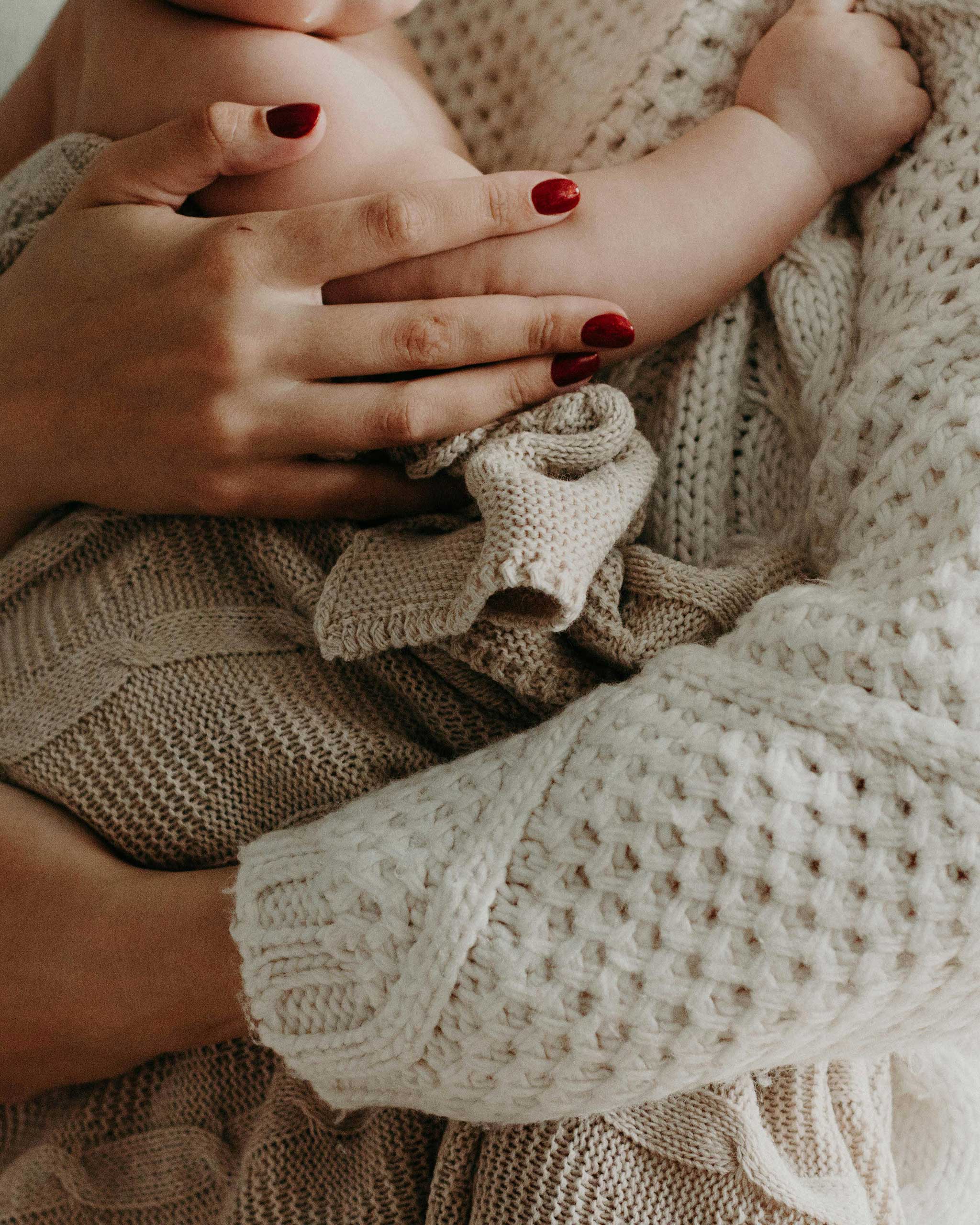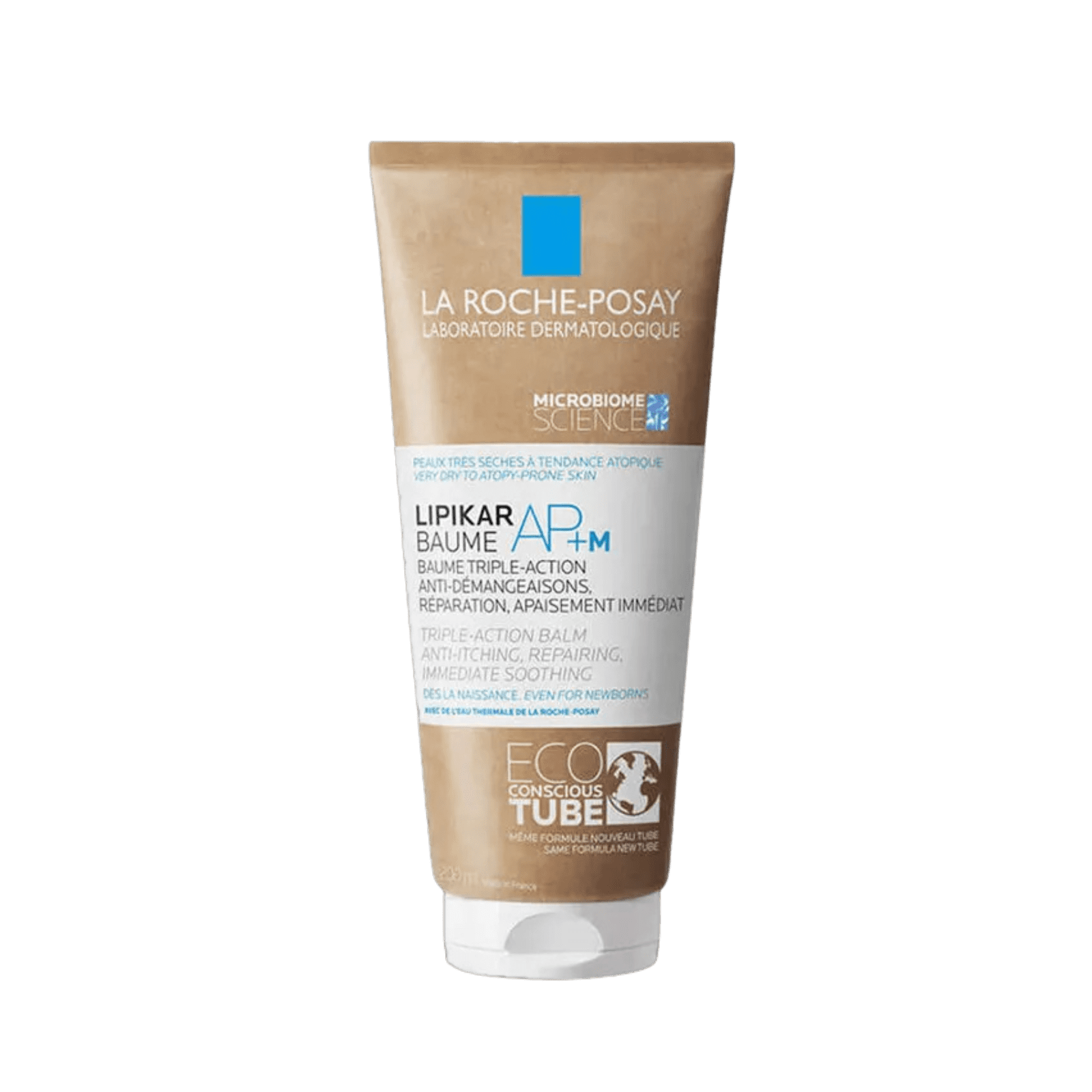Pexels / Kristina Paukshtite
I’m thinking about buying a new moisturiser. It’s an exquisitely formulated hydrating milk from Dior, featuring mallow extract harvested from the brand’s very own garden in Anjou, that promises to nourish and strengthen the skin barrier. The bottle itself is decorated with fantastical illustrations by artistic director Cordélia de Castellane, making it a showpiece on even the most awe-inspiring skincare shelfie. At £95, it’s more than many would typically spend on a moisturiser. Especially because – did I mention? – it’s for my one year-old baby.
It may sound excessive, but as any parent will testify, you would go to the ends of the earth (and the depths of your deepest pockets) to do what’s best for your child, and finding the right moisturiser is no exception. A recent TikTok video documenting how one mother got rid of her baby’s acne went viral (it currently has 2.1 million views and counting). “Here’s the highly requested routine on how I cleared my baby’s acne in a week,” she proudly announces, while showing before and after videos of her baby’s skin. Another user’s video chronicles an ongoing quest to treat her baby’s acne and rashes. It currently has 14 million views and countless comments from fellow parents with product recommendations and tips. It’s hardly surprising, then, that the global baby and pregnancy skincare market is a burgeoning subset of the beauty industry, predicted to reach $13.5 billion by 2031, according to trend forecaster WGSN.
But is TikTok the best place to find skincare advice for babies? “While parents can become concerned about the appearance of baby acne, it usually does not require specific treatment, will settle on its own and does not irritate the baby,” explains Dr Thivi Maruthappu, consultant dermatologist, nutritionist and researcher. Similarly, cradle cap is a common skin condition that causes flaky patches on the scalp that may look concerning, but aren’t itchy or painful. And while a gentle moisturiser might help, there’s usually no reason – aesthetics aside – to treat it.
However, there are occasions when the right skincare can be essential and can even help prevent distressing skin conditions, like eczema. “Emollients are recommended for daily care of dry or flakey skin, as well as on babies who have a first-degree family member with an atopic constitution (for example, someone who experiences eczema, hay fever, asthma, IgE-mediated food allergies or dust allergy),” explains Dr Amélie Seghers, consultant dermatologist and expert in paediatric dermatology. “Regular application from birth can be an effective approach for eczema prevention in babies at high risk of developing the condition, but it is important to choose moisturisers suitable for infant skin.”
So, what makes a “good” baby moisturiser? Ingredients like ceramides that are proven to protect and strengthen the skin barrier, as well as the likes of glycerin and panthenol, which help to reduce water loss and retain essential moisture, are a good place to start. Perhaps more important to note, however, are the ingredients to avoid. “Newborn and infant skin is not the same as adult skin,” explains Dr Seghers. “The skin barrier of newborns continues to develop with age – it’s not until they reach two years old that the barrier properties of their skin closely resembles those of adult skin. Infant skin, especially that of preterm and newborn babies, is more susceptible to irritation and infections, and it has an increased permeability for topical ingredients.”
It’s for this reason that active ingredients should be approached with extreme caution, if not avoided altogether. “The use of common topical exfoliating agents, such as salicylic acid, lactic acid, glycolic acid and urea, can lead to systemic toxicity, especially in young patients affected by skin diseases with impaired barriers (as an example, eczema) and should be avoided completely in those under two,” says Dr Seghers.
There’s also the matter of allergies. “Nut or seed oils should be avoided in baby skincare as research shows that children can become sensitised to them, which can then contribute to the development of allergies later in life,” adds Dr Maruthappu. “The motto should be ‘protect and preserve’. Plus, baby skin smells so gorgeous, why would you want to mask that with fragrance?”
Finally, know that the best choice isn’t necessarily the most expensive option; these days, there’s a plethora of skincare products at every price point tailored to the needs of the youngest of skins. Go for trusted brands and do your research on the ingredients. Below, the best baby skincare to try now, as approved by Mini Vogue editors…
The best skincare for babies
Loved by dermatologists, this balm immediately soothes extremely dry and eczema-prone skin. It restores skin barrier function, reducing the frequency of dry skin flare-ups, and helps to rebalance the skin microbiome. Plus, it’s fragrance-free and hypoallergenic, and has been rigorously tested to ensure the highest standards of safety and efficacy.
French pharmacy favourite Mustela has finally launched in the UK, much to many parents’ delight. The brand is known for its expertise in neonatal dermatology combined with a passion for plant extraction. The Hydra Bébé Facial Cream contains organic avocado, vegetable glycerin, vitamin E and shea butter to provide immediate and long-lasting protection and hydration.
Born from one mother’s desire to alleviate her baby’s eczema, Nala’s Baby is the first British-made skincare range for babies with a “perfect zero” rating on independent product rating app Think Dirty, which helps shoppers identify potentially harmful ingredients in personal care products. The brand’s Body Lotion is packed with soothing oats and nourishing coconut oil to protect skin, and is gentle enough for newborns.
Specially formulated with eczema-prone skin in mind, OatDerma Baby Moisturiser’s ingredients include colloidal oatmeal and oat oil, both of which are clinically proven to deeply nourish and calm the skin while protecting its barrier.
This nourishing, multi-purpose ointment has been developed with dermatologists and is enriched with three essential ceramides, pharmaceutical-grade petrolatum and hyaluronic acid to create a physical barrier on top of the skin and deliver instant relief from dry, chapped skin. A changing bag essential.
With extracts of calming calendula oil and soothing organic apricot oil, this Bamford moisturiser is formulated to smooth, soften and nourish. Plus, it’s free from alcohol, parabens, mineral oils and fragrance, meaning it’s safe to use from birth.
This article was originally published on British Vogue.






